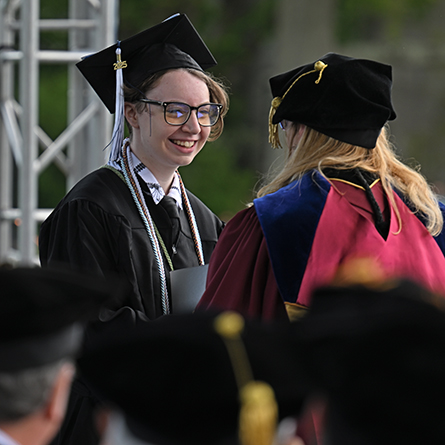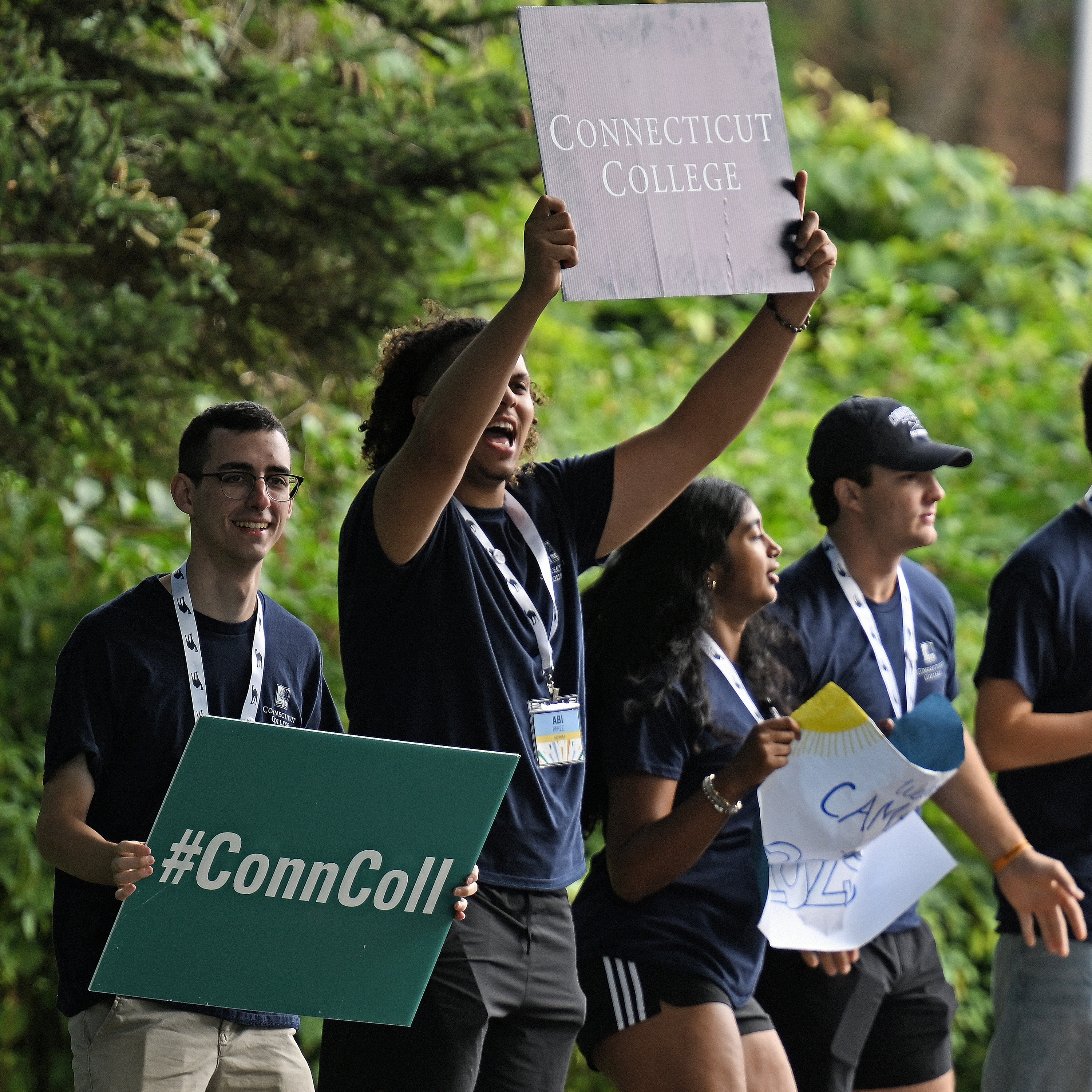
Owyn Ledina ’25 wins the 2025 Oakes and Louise Ames Prize
Owyn Ledina ’25, an English major and educational studies and sociology double minor from Newtown, Connecticut, was awarded the 2025 Oakes and Louise Ames Prize for their honors thesis, “Child’s Play: Revolution and Liberation in 21st Century American Children’s Speculative Fiction” at Connecticut College’s 107th Commencement May 18. Ledina’s work explores the question of why so much of contemporary American children’s literature relies on stories in which children must save the world from evil against impossible odds. Using Suzanne Collins’s The Hunger Games trilogy and the Avatar: The Last Airbender animated series as their main objects of study, Ledina also examines how the protagonists’ more “childish” qualities—play, humor, imagination, creativity and joy—influence their character development and the development of their societies.
Named for the late president emeritus of the College and his wife, the Oakes and Louise Ames Prize is given to a graduating senior who has completed the year’s most outstanding honors study. The prize is offered by the trustees in recognition of the quality of academic achievement that Oakes and Louise Ames fostered during their 14 years of service to Connecticut College.
Throughout their thesis, Ledina regularly combines their own deep knowledge of U.S. children’s literature, television and film with scholarly research in the fields of educational theory, pedagogy, critical race theory and postcolonial theory.
In a letter nominating Ledina for the Ames Prize, Associate Professor of English and Chair of the English Department Jeff Strabone called Ledina’s thesis “a work of keen original thinking and urgent moral seriousness” that left him feeling hopeful for the future. “This thesis is a vigorous defense of play and games and friendship and their revolutionary potential to liberate us from thinking we can win our oppressors’ games,” he wrote.
Assistant Professor of English Marie Ostby, who served as Ledina’s thesis adviser, praised them for being “completely unafraid to tackle the big questions” of our time. “I cannot think of a more urgent place to turn our critical lens than to these stories about the violent relationship between children and the state, published in the late 2000s and early 2010s when Gen Z’s cultural and political imaginations were formed,” she said. “Fine-tuning our attention to the urgency of these stories, and the deep injustices embedded within them, is precisely what Owyn has done and done superbly.”

